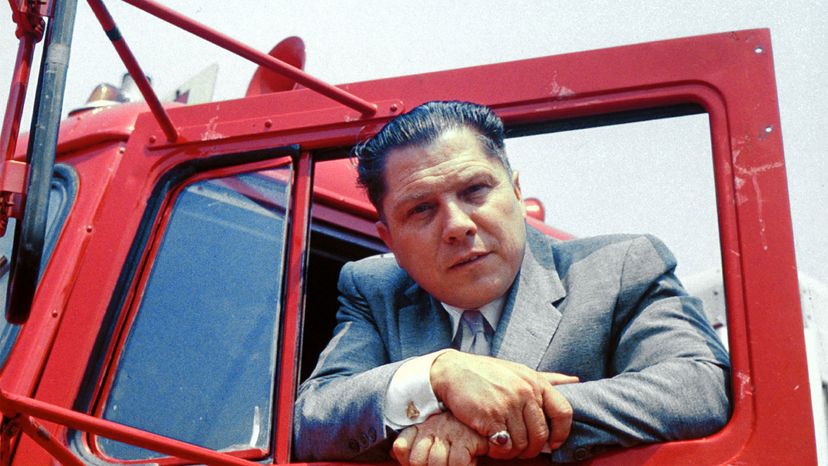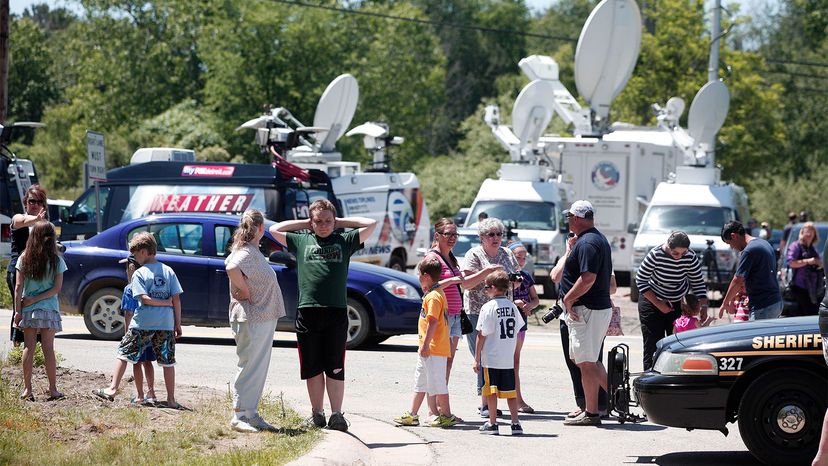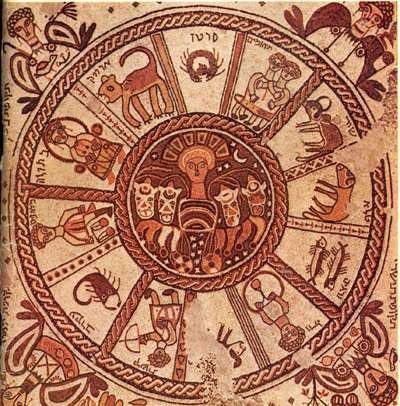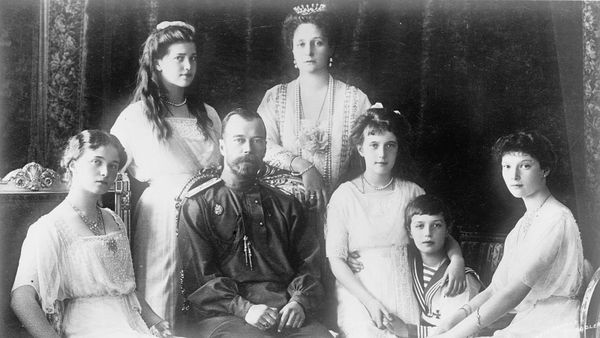
Jury tampering, mail fraud and bribery were just a few of the crimes that sent infamous union boss Jimmy Hoffa to prison for four years until he was pardoned by President Richard Nixon in 1971. Hoffa had served as president of the International Brotherhood of Teamsters since 1957, and was alleged to have deep ties with the Italian-American Mafia. Ironically, it may have been a falling out with Hoffa's mobster allies that ultimately led to his disappearance on July 30, 1975.
In the 1960s, Hoffa was one of the most powerful political figures in America. Armed with only a high-school education, Hoffa used his street smarts and determination to rise through the ranks of the Teamsters, one of the country's biggest and most powerful unions. It was under Hoffa's leadership that nearly all truck drivers in America signed a collective union contract in 1961 [source: Biography.com].
Advertisement
In the first half of the 20th century, unions were known to partner with organized crime in order to pressure business leaders and politicians to accept their terms. The FBI dogged Hoffa for years, as did Attorney General Robert F. Kennedy, but law enforcement was unable to pin criminal charges on the Teamster chief until 1964, when Hoffa was convicted of bribing members of a 1962 jury.
Four years into his sentence, Hoffa was pardoned by Nixon. But as a condition of his release, Hoffa promised to never again hold a leadership position in the Teamsters or any other union until 1980. Hoffa's later attempt to renege on that deal may have cost him his life.
On July 30, 1975, Hoffa arrived at the Machus Red Fox Restaurant in Detroit, allegedly for a meeting with Anthony "Tony Jack" Giacalone, a local Mafia street boss. But Giacalone never showed, and after some friendly chitchat with other diners, Hoffa walked out of the restaurant, never to be seen again. The next day, authorities found his car still in the Red Fox parking lot, but Hoffa's whereabouts, and the circumstances of his suspected murder, remain one of the greatest mysteries in FBI history.
Despite multiple investigations in the decades that followed, Hoffa's body has never been found. Tips from aging mobsters and anonymous sources have prompted forensic digs in far-flung places as the FBI has attempted to unearth Hoffa's burial site. They've searched beneath the lawn of a private home in Roseville, Michigan, and in 2013 they dug under a concrete slab in a field near Detroit about 20 miles (32 kilometers) from the restaurant where Hoffa was last seen alive [source: Lichterman]. In 2019, they searched a parcel of land in Hillsdale Township, Michigan.

The tips that have trickled in to investigators during the last four decades have contended Hoffa's remains could be found anywhere — from under an end zone in the now-demolished Giants Stadium in East Rutherford, New Jersey, to a swamp in the Everglades. Another proposed explanation is that Hoffa's body was stuffed into a junkyard car, put through a compactor and then shipped overseas as scrap metal [source: Bump].
Perhaps the real reason Hoffa's body has never been found is far simpler — there is no body.
What Really Happened to Jimmy Hoffa's Body?
James Buccellato is a senior lecturer in criminology at Detroit's Wayne State University, author, and host of the Original Gangsters podcast. He doesn't buy any of the stories that Hoffa's body was shipped back to the East Coast or even to the suburbs of Detroit. From conversations with FBI agents who worked the case, Buccellato believes the body was most likely cremated in a mob-owned incinerator just miles from the restaurant where Hoffa was last seen alive.
"The idea that he was transported to New Jersey and buried somewhere, it just doesn't make sense for logistical reasons," says Buccellato. "The Mafia guys are going to want to get rid of the body as soon as possible."
According to the FBI's "Hoffex Memo," an internal report prepared six months after Hoffa's disappearance, the top suspects in the murder were Charles "Chuckie" O'Brien, a close friend whom Hoffa raised as a son, and Frank "The Irishman" Sheeran, a longtime Hoffa friend and known Mafia hit man.
Both suspects were believed to have been under orders from Anthony "Tony Pro" Provenzano, a New Jersey Mafia boss and Teamster officer who had done time with Hoffa in Lewisburg Prison before the two men had a bad falling out. Buccellato says that a personal vendetta was definitely at play, but that Provenzano wasn't the only Mafioso to want Hoffa gone.
Remember that as part of Nixon's pardon, Hoffa agreed to not assume another leadership position in the Teamsters. But as soon as he left prison, Hoffa initiated legal proceedings to get that leadership ban overturned. He started meeting with his old base of supporters and assembling a coalition to get back into power.
The mob guys didn't like this one bit. Hoffa's Teamsters replacement, Frank Fitzsimmons, was the perfect Mafia puppet. For the underworld bosses in Detroit, Hoffa was not only a hardheaded pain in the neck, but he was constantly trailed by the FBI. The wise guys told Hoffa to drop the comeback.
"They said, 'That's unacceptable. You generate too much heat, too much publicity, you're too high-profile,'" says Buccellato. "'You need to ride off into the sunset.'"
But Hoffa wouldn't listen. And that's when he started to get phone calls from associates of his prison "pal" Provenzano. They said Provenzano wanted to meet to bury the hatchet and make peace. Hoffa must have smelled a rat, because he refused. In the FBI memo, he tells the go-betweens that he "wouldn't meet Provenzano anywhere" and calls the mobster a "bum."
"I Heard You Paint Houses"
And then came the July 30, 1975 meeting at the Red Fox. Hoffa told trusted associates that he was going to meet with the local Mafia boss Giacalone, but didn't mention Provenzano. Either way, neither of the men showed up at the restaurant, so Hoffa left. What happened next is pure speculation, but the FBI had a theory in 1976 and a 2004 deathbed confession backs it up.
When Hoffa left the restaurant, according to the Hoffex Memo, he was probably met in the parking lot by either his foster son, Chuckie O'Brien, his trusted associate, The Irishman, or both. The FBI doesn't think Hoffa wasn't forcibly snatched and tossed into a car, because he would have made a scene in front of dozens of witnesses.
"It had to be people Hoffa knew and had earned some level of trust," says Buccellato. "In that world, you don't trust a lot of people, which narrows it down to a handful of people that would have been there during that moment where they tell him, 'The meeting is happening somewhere else.'"
Believing he was in safe hands, Hoffa was then taken to a local mobster's house, where he was summarily shot and killed, and his body was burned up either in an incinerator or at a Mafia-owned funeral home.
According to a book by The Irishman's former lawyer, Charles Brandt, the prolific hit man confessed on his deathbed to killing Hoffa and cremating the body at a funeral parlor. The book's title, "I Heard You Paint Houses," comes from the very first conversation between Hoffa and The Irishman in 1957, when the newly elected Teamster leader needed some muscle.
"I heard you paint houses," Hoffa asked The Irishman, employing a mob euphemism for murder. The Irishman allegedly said yes and added, "I also do my own plumbing," meaning that he got rid of the bodies, too.
If The Irishman's story is true, then his "plumbing" skills are the reason the Feds have never recovered Jimmy Hoffa's body and that nobody has stood trial for his murder.
Advertisement

